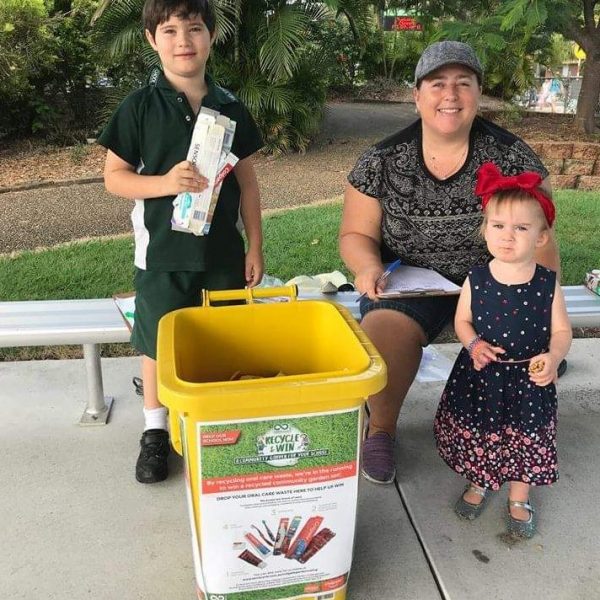Repurpose It supports ECEC services with free sustainability sessions

Melbourne based organisation Repurpose It hosts free sustainability incursions with preschool and school-aged children and recently held a ‘train the trainer’ session for teachers focusing on fostering sustainable practices.
Since July 2024, Repurpose It has hosted 45-minute sessions with early childhood centres in the Victorian communities of Hume and Whittlesea, covering essential sustainability topics such as waste sorting, composting, and waste reduction. The aim is to educate children on the work of recyclers such as Repurpose It.
The sessions connect with young people to gauge their level of understanding about waste streams, how they are used and where materials go once they leave the bins at home.
Hands on learning
Repurpose Its Education and Communications Specialist Thom Fox uses portable worm farms and compost bins as a tangible link between actions at home and the larger scale resource recovery process, to teach young people about sustainable practices.
He believes that early education about organics is important because it lays the foundation for sustainable practices from an early age, while instilling a sense of environmental responsibility in children, describing the preschool and primary school years as being a critical moment for consolidating, understanding and establishing a sense of identity.
“Kids learn their place within the world, and how their actions have an impact and influence their community,” he shared with Waste Management Review.
In the sessions, children discover how to make compost and recycle food scraps, and how they can take care of nature, something he hopes will inspire them to care for the planet by reducing waste, which helps them develop habits that can positively impact the environment throughout their lives.
“We work to replicate what’s happening on our site in Epping by breaking the process down in ways they will understand,”Mr Fox explained.
Repurpose It produces products from waste that support a number of industries including construction and demolition, and food organics and garden organics (FOGO).
Materials that enter the site are screened and tested. Fox discusses these steps and how the organic material is broken down into compost at the other end.
“We want to educate the kids about Repurpose It’s mission, but more importantly the sessions are about how to use the waste streams effectively to reduce contamination,” he added.
“We use real world language like contamination, recycling and mitigation strategies with kids while combining easy to understand practices like worm farms. This is a great tool for explaining the workings of FOGO, because if the worm cannot eat it, it cannot go in the FOGO green bins.”
This tangible learning, he continued, is a useful tool because the choices made at home do matter.
“Contamination mitigation is best combated at the incoming feedstock point, which is also known as the residential bin. We want to reduce contamination at the source, rather than trying to innovate and ideate at the back end with million-dollar machinery.”
At a community level, the incursions work to demystify the recycling process by highlighting the human element, and addressing some of the reasons for residential contamination such as misunderstanding, ‘wishcycling,’ apathy, or simply not knowing what waste goes in which bin.
“We want community connection between organics and recycling to be second nature,” Mr FOx said.
“By starting our programs with children at one of their most critical cognitive developmental stages, we’re aiming to foster a strong sense of environmental advocacy and agency. If you start environmental education at this age, you are potentially setting them up to have 13 years of education focusing on some elements of environmental sustainability. You also get ‘pester power’ with children who pester their parents and family members to keep up with organics and recycling.”
Outstanding reviews
Since the inception of the program Mr Fox has sent surveys to all participating centres and is pleased to have always received positive feedback.
“We have visited more than 30 ELCs (Early Learning Centres) and five schools, allowing us to reach over 1300 families just from the ELC visits alone,” he said.
“Written feedback has been overwhelmingly positive. We find although the program is targeted to children, the adults in the room are also listening and learning. Our requests for incursions have increased exponentially since schools have returned for 2025. We are fully booked for term one, I am now taking incursion bookings for term two and three.”
Repurpose It collaborates closely with its council partners across Victoria where they take in FOGO, street sweepings as well as hard and soft green waste, and the team is looking to expand the program to offer excursions on site in Epping.
“Incursions are amazing, and it is wonderful to be able to facilitate them,” he said, “but there is nothing more visceral and tangible for students and teachers than an onsite excursion.” “The sooner we can embed the right practices the better. If we teach kids how to manage recycling streams, we have a greater chance of success.”
For more information, visit: www.aora.org.au and www.repurposeit.com.au
This story first appeared in Waste Management Review and has been adapted for The Sector’s audience. Find the original here. Image sourced from Repurpose It.
Popular

Quality
Workforce
Practice
Provider
Caring for children after community tragedy
2025-12-15 08:28:17
by Fiona Alston

Quality
Practice
Research
Small ways to teach babies and toddlers body safety and consent in early learning
2025-12-15 08:00:40
by Fiona Alston

Economics
Provider
Quality
Jobs News
Policy
Practice
Workforce
The year in review: 2025's most impactful ECEC news stories and shifts
2025-12-16 07:32:18
by Fiona Alston
















